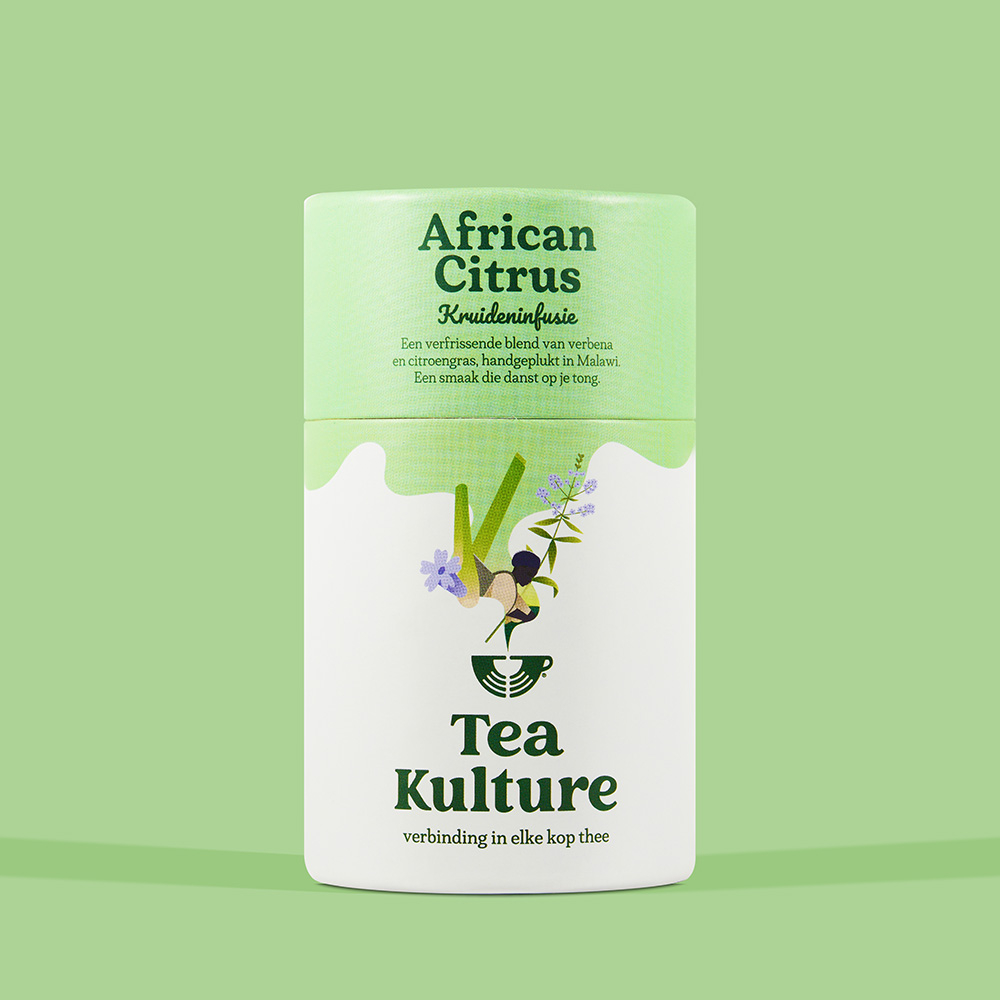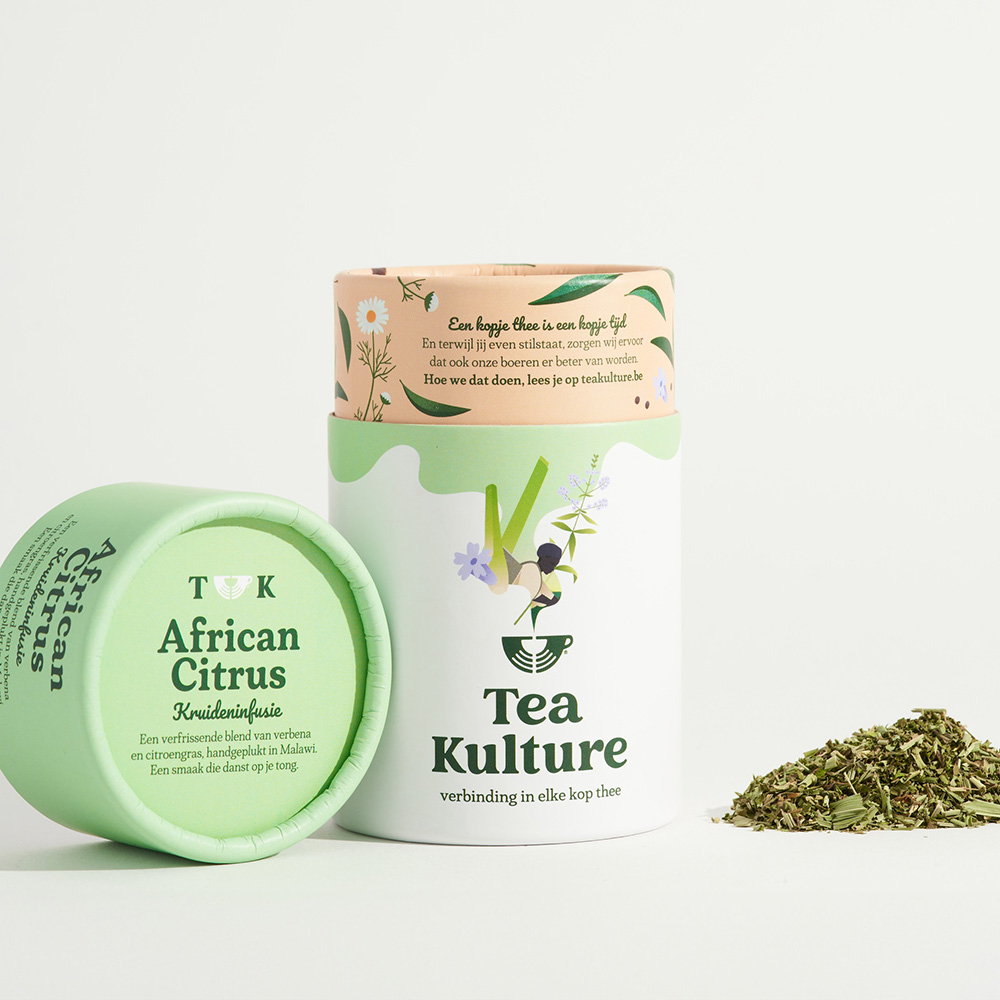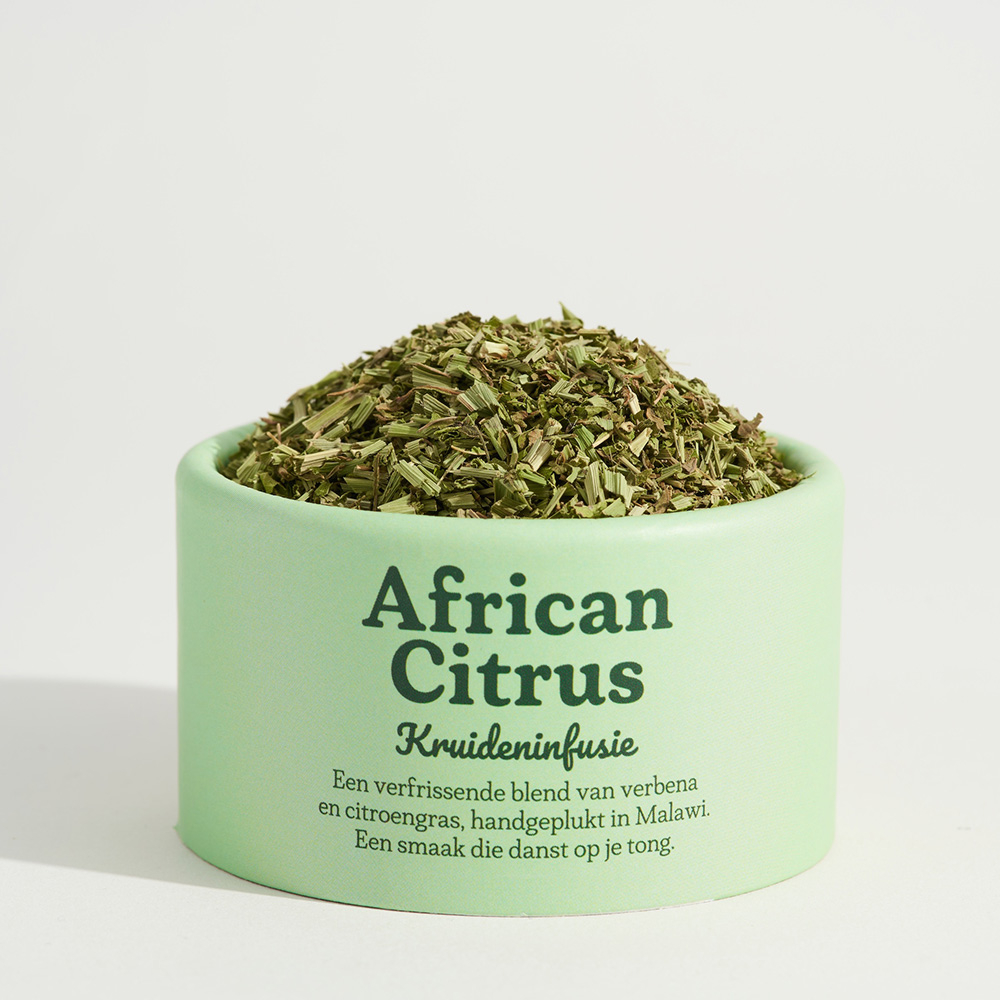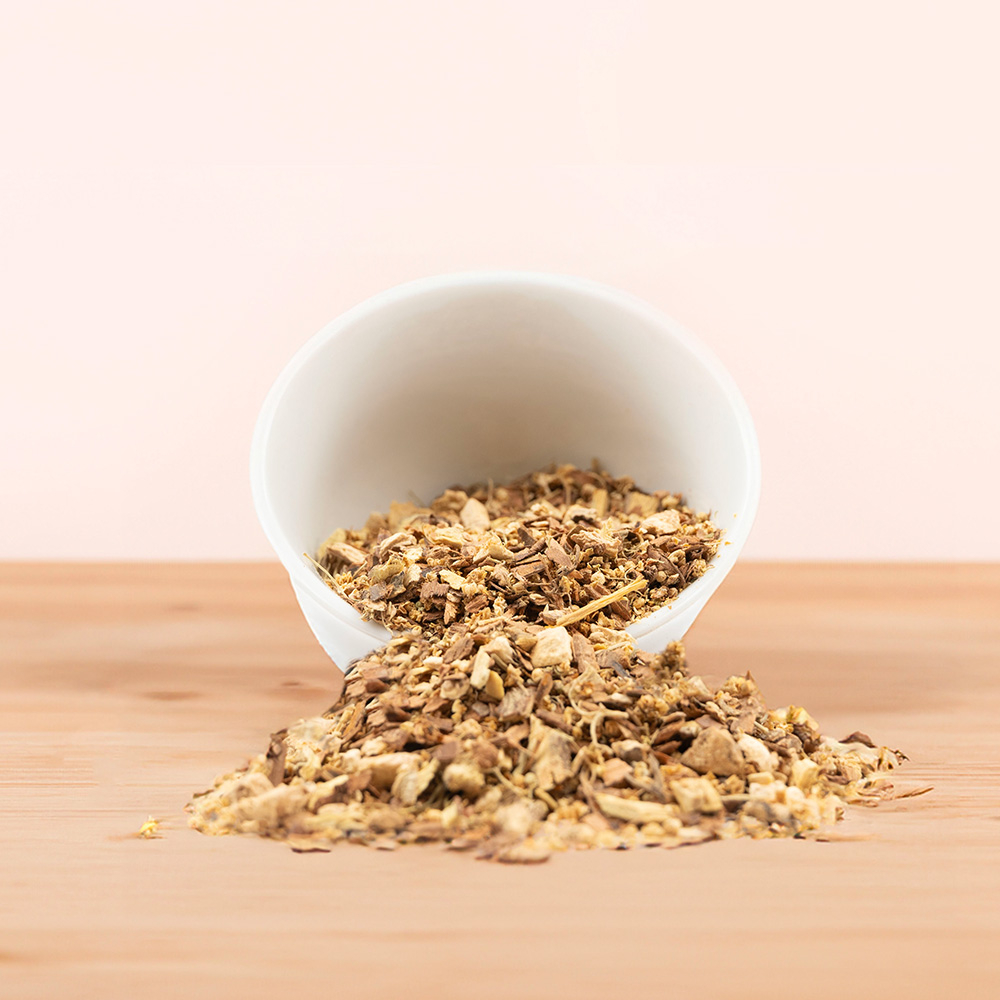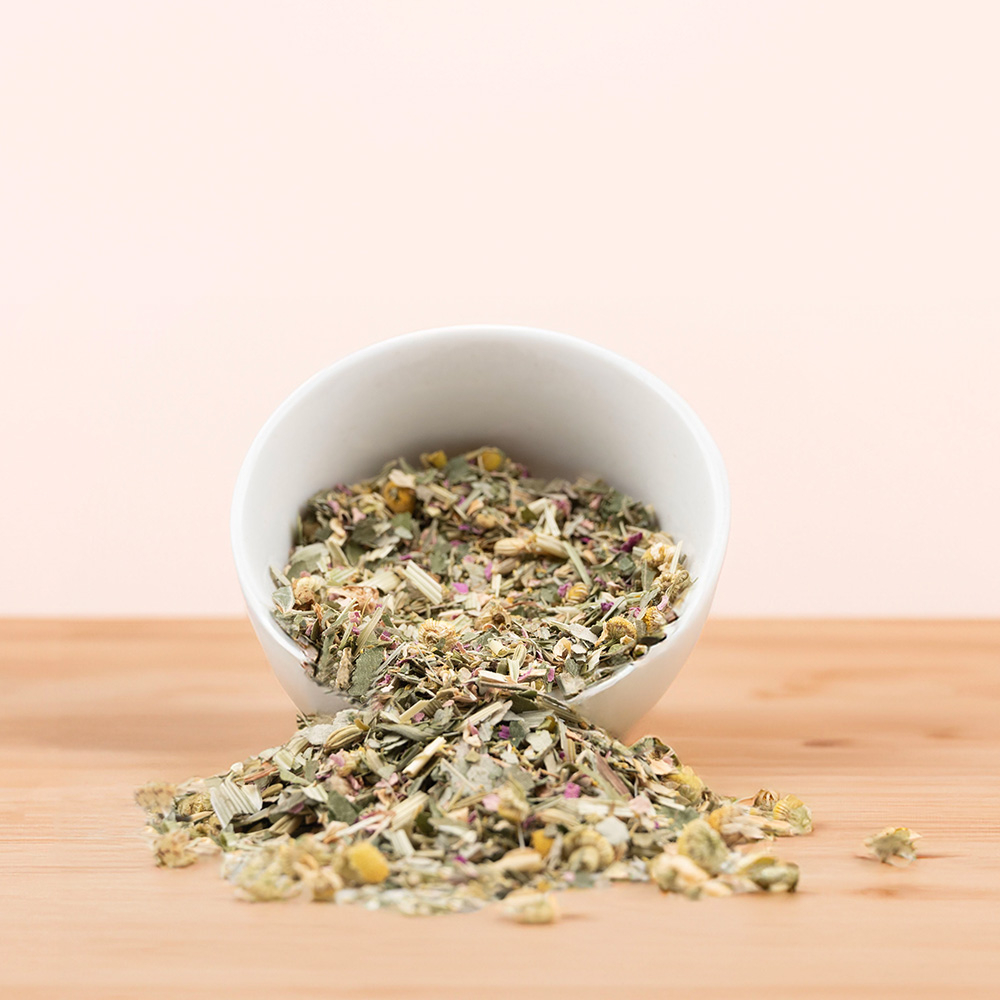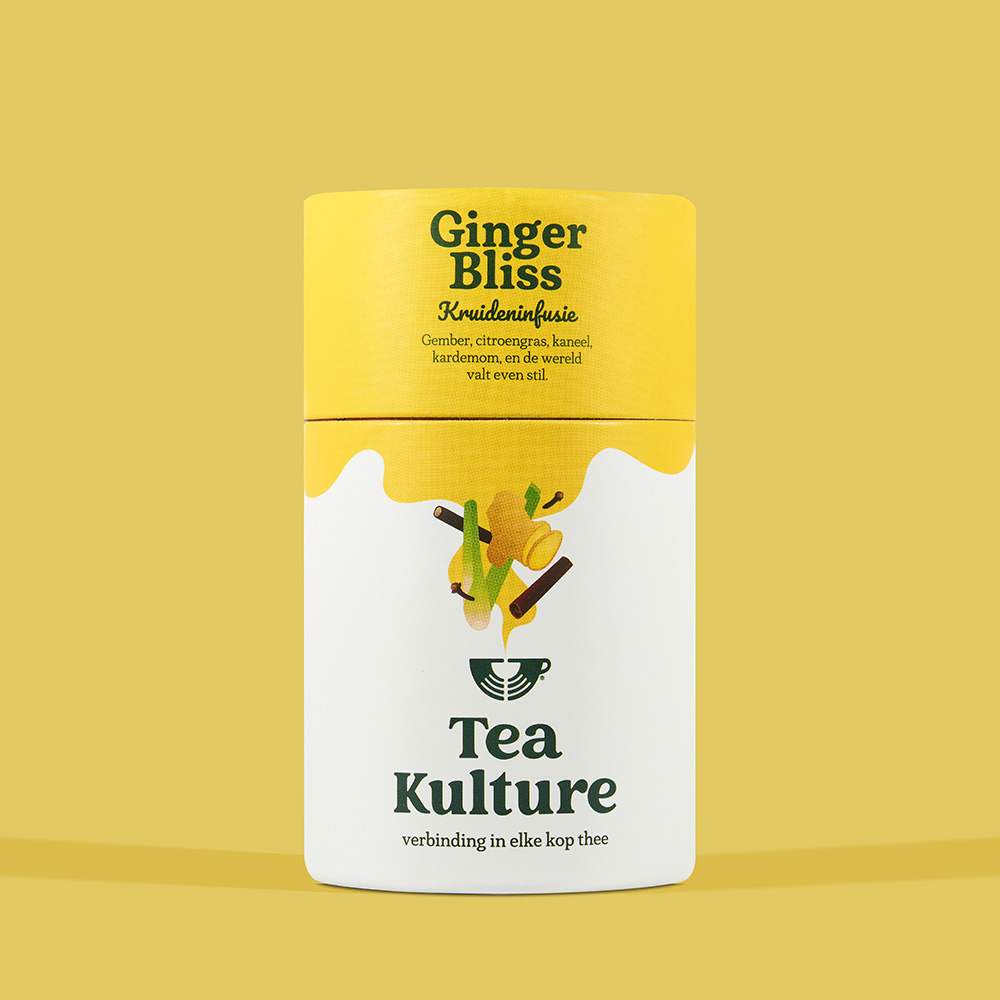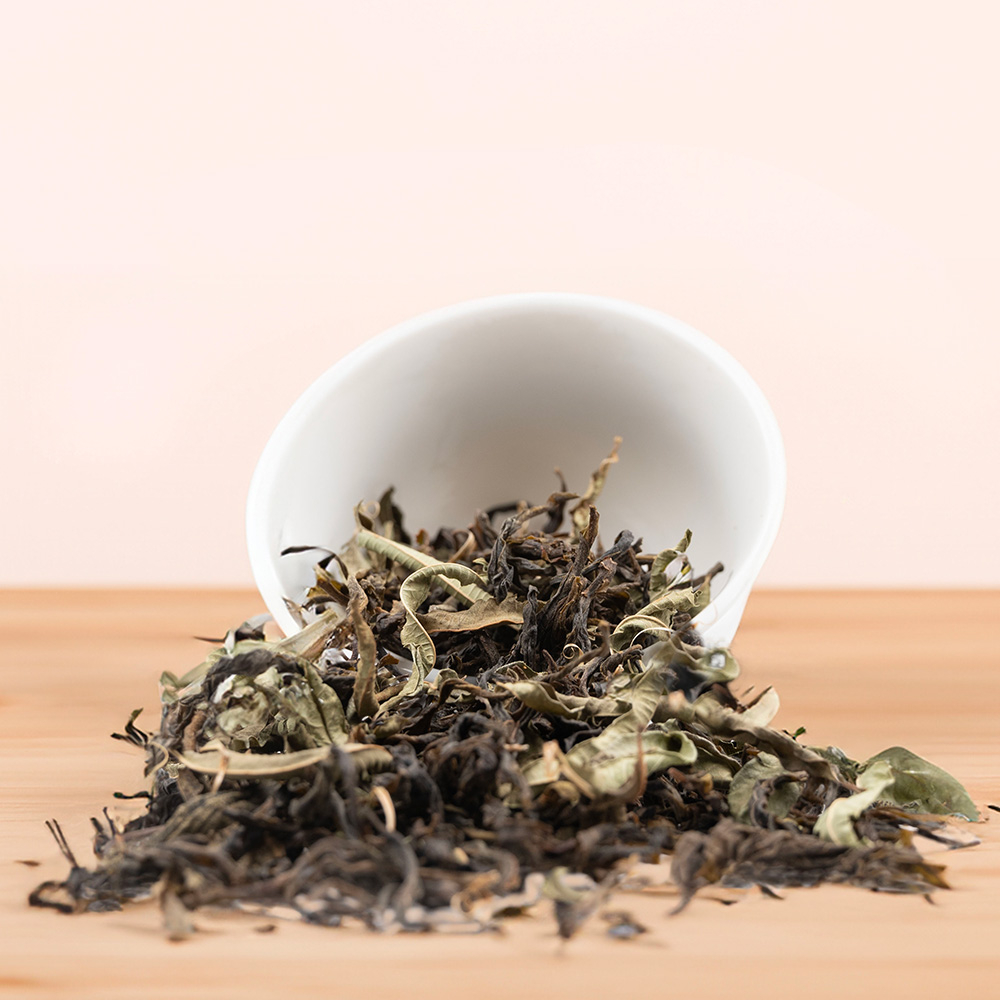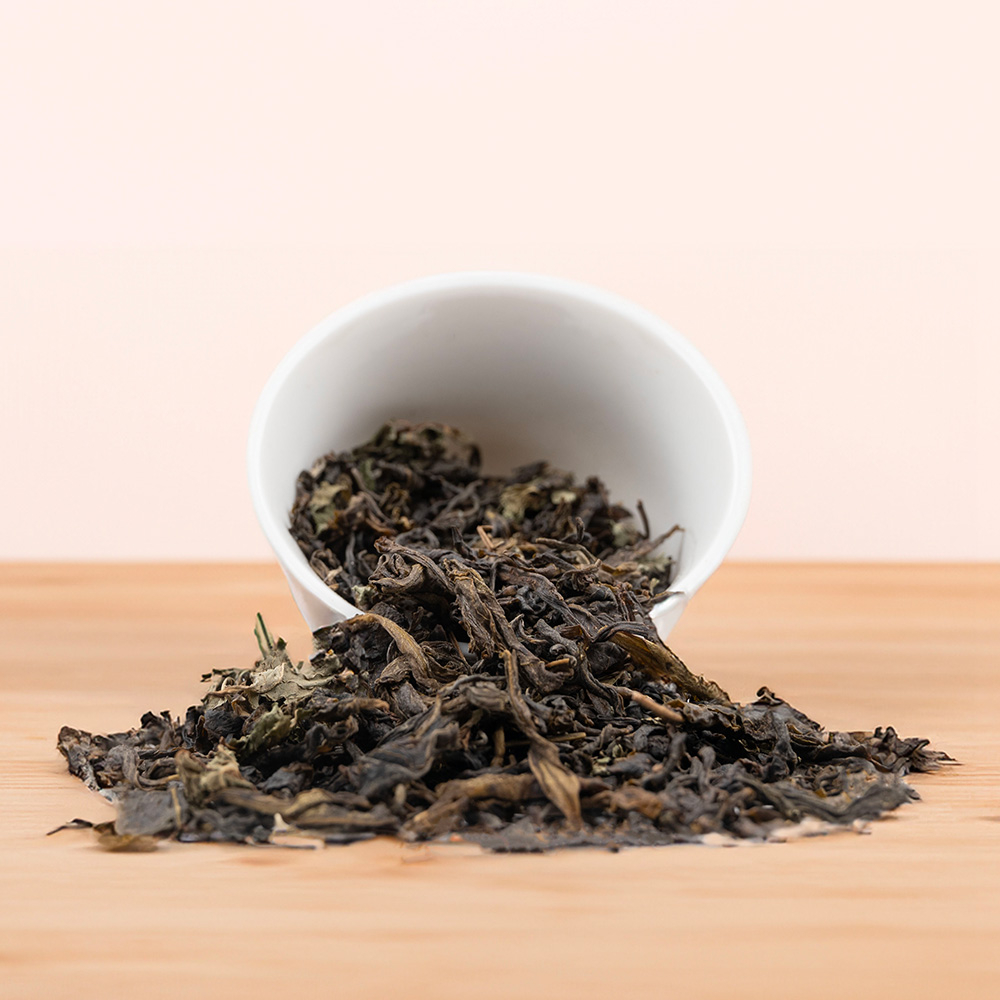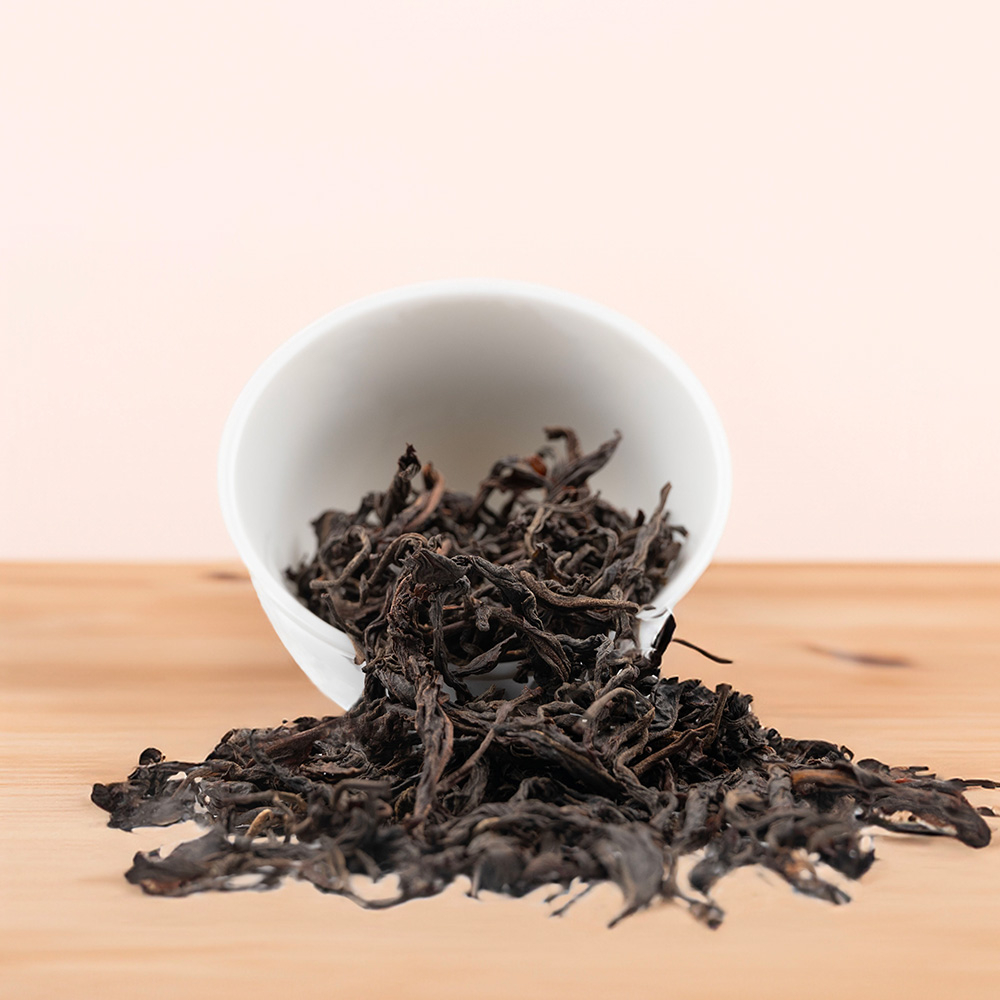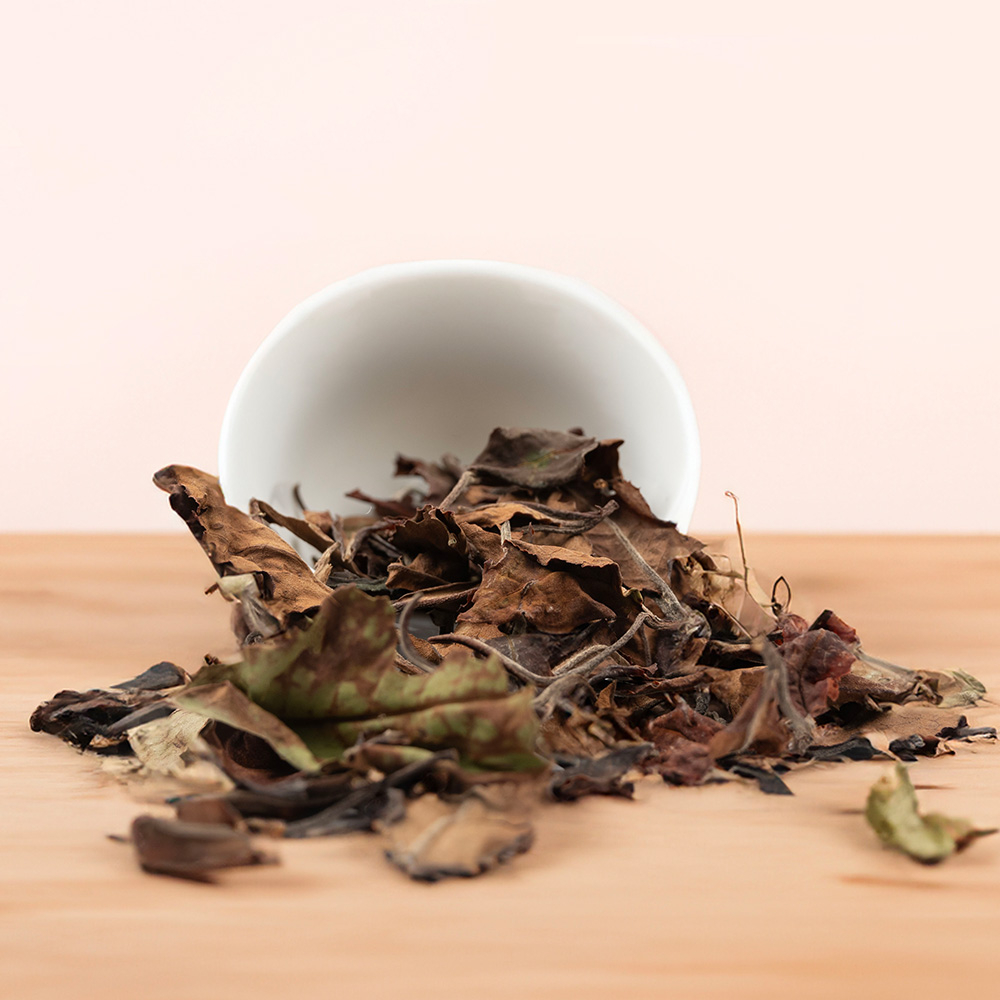Shop - Herbal infusions - African Citrus
More About African Citrus
As the bright, zesty notes of lemongrass harmonise with the sweet, floral undertones of lemon verbena, this African Citrus herbal infusion evokes the sunny spirit of Africa.
Ideal for moments of tranquillity, this citrusy tea not only rejuvenates the senses but also supports healthy digestion and relaxation.
Characteristics
| Tea Class: | Herbal infusions |
|---|---|
| Producer: | Satemwa |
| Country Of Origin: | Malawi |
| Year Of Harvest: | 2024 |
| Ingredients: | 50% verbena, 50% lemongrass |
| Tasting Profile: | Citrus |
| Caffeine: | No |
Brewing Tips
Quantity of tea leaves: 2 gram
Temperature of water: 100°
Infusion time: 5 minutes
Maximum number of infusions: 2 times
To fully enjoy the invigorating and warming cup of African Citrus, start by heating water to 100°C. The boiling temperature is suitable for all herbal infusions, perfect for extracting the rich flavours and health benefits from the blend. Place about 2 grams of African Citrus into your teapot or infuser (about 250 ml), ensuring there’s enough space for the herbs to expand and release their flavours.
Pour the boiling water over the African Citrus blend, completely covering the ingredients, and let it steep for 5 minutes. The infusion time can be adjusted to personal preference, with a brief steeping period for a subtle taste and a longer steeping period resulting in a stronger flavour.
As you drink your cuppa, enjoy the rich, citrusy notes balanced by sweet undertones. African Citrus can be enjoyed hot for a warming experience or cold for a refreshing iced tea.
Read more about how to brew a delicious cup of tea.
Tasting Profile
African Citrus offers a sensory delight with its bright and aromatic blend of herbs. The dry leaves present a colourful medley of green lemongrass strands and vibrant lemon verbena leaves, creating an inviting visual contrast.
The aroma and flavour are citrus-forward, with lemongrass contributing a fresh, zesty tang that is both uplifting and aromatic, while verbena adds a subtle, lemony sweetness with a hint of floral undertones.
Once brewed, African Citrus reveals a vivid yellowish-golden hue, and the flavour profile is equally dynamic and soothing. The finish is clean and crisp, leaving a lingering, refreshing aftertaste that rejuvenates the senses.
Health Properties
African Citrus is more than just a delicious tea; it’s packed with health benefits from its carefully selected ingredients.
Both lemongrass and lemon verbena are renowned for their soothing properties, promoting healthy digestion and helping to alleviate anxiety and stress, contributing to relaxation. Together, these ingredients create a revitalising blend that enhances overall well-being, offering a calming and restorative experience.
Disclaimer: herbal infusions are known for their traditional health benefits, however, it is important to note that this information is not intended as medical advice. Please consult a healthcare specialist for any health concerns.
Origin
Tea production in Malawi, a landlocked country in southeastern Africa, dates back to 1891 when Jesuit missionaries from Scotland introduced Chinese tea bushes via the Royal Botanic Garden in Edinburgh, making it the first African country to cultivate tea commercially. The country’s tea-growing regions, particularly Thyolo, Nkhata Bay, and Mulanje, benefit from high altitudes, rich volcanic soils, and a subtropical climate, creating an ideal terroir for tea cultivation.
Malawi primarily produces black tea for the CTC (cut-tear-curl) market, known for its strong, brisk flavour and vibrant colour, but there is also a growing interest in green and specialty teas. As one of the top tea producers in Africa, Malawian tea is a key export product, contributing significantly to the country’s economy.
Nestled in the Shire Highlands of the Thyolo district, Satemwa Tea Estate is a picturesque landscape of rolling tea gardens and pristine mahogany forests, producing a wide range of black, green, oolong, white, and dark teas. Tea here is grown at an altitude of 1000-1200 metres above sea level, produced from various local unique cultivars, and the bushes are relatively young, the plantations being 50+ years old.
Founded in 1923 by Scot MacLean Kay, the estate transformed from a tobacco farm to a tea nursery, planting its first fields in 1926 and opening the factory in 1937. Historically, much of Satemwa’s production catered to the CTC market, supplying major brands like Pickwick, Lipton, Tetley, and Yellow Label.
Today, under the leadership of third-generation farmer Alexander Kay and a dedicated team including Chisomos Custitomu and Fadson Mandala, Satemwa has shifted its focus to specialty teas, emphasising craftsmanship and quality to sustain employment and enhance the income of the local community. As one of the last independent, family-run farms in Malawi, Satemwa boasts diverse crops, including tea, coffee, hibiscus, and various herbs, while maintaining protected areas of ancient indigenous forest.
This biodiversity supports numerous species and enriches the land, further nurtured by the estate’s sustainable practices and year-round employment for its workers. In 2009, the smallholders of Satemwa obtained Fair Trade and Rainforest Alliance certification, with gender equality and climate change mitigation high on the list of priorities for the estate. The emphasis on handcrafting rather than mechanisation ensures high-quality artisan tea.
Read more about Satemwa Tea Estate.
Production
Experience the refreshing taste of African Citrus, a unique blend of locally sourced lemongrass and verbena, both cultivated at the Satemwa Tea Estate in Malawi. The production of herbal infusions involves a pretty straightforward and simple process, starting with the careful harvesting of plants from either the wild or cultivated fields.
Whether foraging for wild herbs like poppy and chaga mushroom or farming chamomile on a larger scale, the next step typically involves drying the plants using natural methods such as shade, sunlight, or mechanical drying techniques. Unlike the intricate processing of true teas from the Camellia Sinensis plant, the complexity of herbal teas comes from the wide variety of plants used.
Various parts of the plant—leaves, flowers, roots, fruits, bark, and seeds—are either enjoyed individually or skillfully combined to create unique and flavorful blends. These infusions are mixed creatively by expert herbalists and tea blenders, offering a rich tapestry of flavours and wellness benefits.
Read more about herbal infusions in our blog.
Storage
Properly storing the African Citrus herbs is crucial to retain its freshness and flavor. The key is to protect them from the elements that can compromise their quality: air, heat, light, and moisture.
Read more about how to store loose-leaf tea.
You May Also Like

News, Promos and Occasional Surprises
That’s what you can expect when you sign up to our newsletter. And we’ll start with a welcome gift: 15% off your first purchase.
Your benefits at Tea Kulture

Free
Delivery
From €75 in BE and €100 in NL

Pickup Available
In Zonhoven and Hasselt (BE)

Fast
Shipping
Within 2-3 business days

Naturally Sustainable
In everything we do

Secure Payment
Multiple payment options

Free Delivery
From €75 in BE – €100 in NL

Pickup Available
In Zonhoven and Hasselt (BE)

Fast Shipping
Within 2-3 business days

Naturally Sustainable
In everything we do

Secure Payment
Multiple payment options
